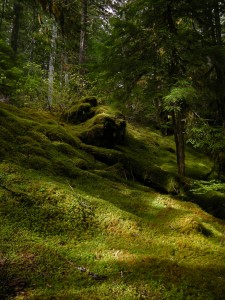The first part of this post was inspired by a posting on the Discussions page by Eric Duncan of Scotland, who wrote in part: “Norse raiders are viewed [in Scotland] as barbaric & uncultured.” Thanks, Eric, for writing, and for the idea for this post.
Eric’s comment is quite accurate–it is a widely held perception of the Vikings that they were a rather barbaric and uncultured people. Their place in history is generally perceived as being a destructive blight on more advanced peoples and cultures during the early Middle Ages. I think these perceptions are very inaccurate, and give the Vikings an undeserved bad reputation. Among my goals in writing the Strongbow Saga–besides trying to tell a story that will entertain and move readers–is to try and present the Vikings and their culture in a way that is more accurate and fair, and that will hopefully help lead to a new perception of them.
From my years of research, I’ve come to realize that the Vikings had a very complex and highly developed culture. In fact, what their culture reminds me most of is the culture of the ancient, Bronze Age Mycenaean Greeks, who were written about by Homer in the great epic poems The Iliad and The Odyssey. There are many similarities: both were quasi-tribal warrior cultures, within which seafaring piracy against other peoples was considered an honorable profession. Both cultures highly valued personal courage and honor, and both had highly developed forms of oral, rather than written, literature–hardly a typical hallmark of uncultured peoples.
There are, of course, many differences between the two cultures. The ones I find most significant concern the concepts of individual rights, and the law. Whereas in the Mycenaean Greek culture, the king of a sub-group–generally a city-state–was pretty much a law unto himself, holding absolute authority over his people, the Scandinavian peoples during the Viking era held a strong belief in the existence of a code of law, which existed independently of any kings or other rulers, and which they believed even kings were required to follow and obey. The Viking peoples believed that individuals had rights under the law, which even kings were bound to respect and honor. Viking kings, of course, did not always agree. But the concept–a very important concept, which even today is the foundation of our belief in most western countries about individual rights and freedoms under the law–was there, in the Viking times and culture, and it was the Vikings who spread that concept across much of Europe.
In England, in the year 1215, King John was forced, after a successful revolt by the English nobility, to sign the Magna Carta, a charter acknowledging that all free men had certain rights and liberties under the law which even the king was bound to honor and obey. The Magna Carta is widely considered to be a seminal ancestor of modern constitutional law, and a major inspiration for the United States Constitution, as well as those of many other western countries. Who forced King John to sign it? Norman lords, the descendants of Vikings who had settled around the mouth of the Seine River in France, from whom their concepts of law and rights had been passed down. Hardly a contribution of a barbaric and uncultured people, who were merely a destructive blight upon more advanced cultures and peoples.
Watch for my next post, which I hope will appear next week or the week after–it will contain some glimpses into book four of the Strongbow Saga
And now for a little news of a more personal sort. My son, Nicholas, visited me about a week ago. It was wonderful seeing him, and while here he made a tremendous contribution to Jeanette’s and my new home and life, by helping us construct, in our barn, a pen for our three ducks and a coop for our chickens. The birds now live in the barn, and our garage is ours again! The ducks in particular were challenging house guests–although they grew rapidly in size, food consumption, and production of poop, they sadly have not grown in wisdom or personality, unlike the chickens, who are personable and entertaining enough to be considered pets. The poor ducks are such dullards, in fact, that it has been hard to even come up with fitting nicknames for them. Here are a few photos of the ducks’ migration to their new home:
It wasn’t all work and no play for Nick’s visit. One day we drove up into the Cascade Mountains, for a hike along the upper McKenzie River, which contains some of the most beautiful wilderness countryside I’ve ever seen.
Oregon is much more mountainous than Denmark, which is mostly flat, but nevertheless I’d love to see Halfdan’s run, from book one of the series, filmed here. In my mind, the wildness and beauty of the forest is a vitally important aspect of that part of the story, for it is in the wild forest where Halfdan, who feels at home there, is able to turn the tables on, and overcome, his pursuers. The Oregon wilderness captures and projects that feeling, of a raw, wild, and beautiful forest, perfectly for me.






Hello Mr. Roberts, I was just curious as to if you had an email address? I’ve searched the internet high and low but I can’t find a thing– however, I can see that you often respond to comments on your posts, so I figure I’d ask.
You can write me at strongbowsaga@gmail.com.